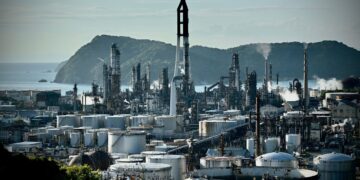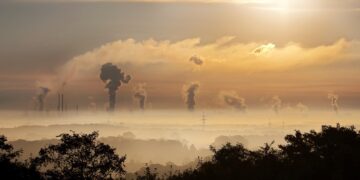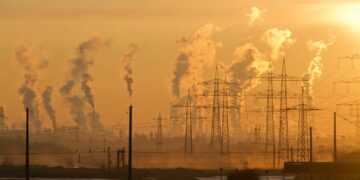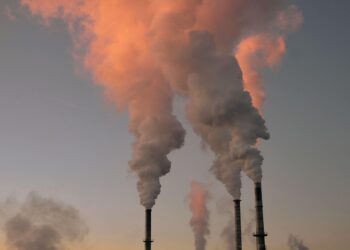Environmental Consequences Unveiled: Understanding the Impacts of Human Activities
Human activities have a profound impact on the environment, often leading to unforeseen and sometimes disastrous consequences. In this article, we delve into the environmental repercussions of our actions, highlighting the importance of sustainability and responsible practices to preserve our planet for future generations.
H2: The Ripple Effect of Industrialization
H3: Air Quality Degradation
Industrialization has dramatically changed the landscape of society but not without significant environmental cost. Factories, power plants, and vehicles emit large quantities of carbon dioxide and other greenhouse gases, which trap heat in the atmosphere and lead to global warming. The burning of fossil fuels also releases particulates and pollutants like sulfur dioxide and nitrogen oxides that contribute to air pollution, adversely affecting human health and contributing to the acidification of lakes and forests.
H3: Water Pollution and Aquatic Life
Industries discharge a variety of pollutants including heavy metals, solvents, and toxic sludge into water bodies. This contamination not only harms aquatic life but also affects the quality of drinking water for millions of people. Eutrophication, caused by the runoff of fertilizers and waste, leads to algal blooms that suffocate marine life and disrupt ecosystems.
H2: Deforestation: A Dual-Edged Sword
H3: Loss of Biodiversity
The clearing of forests for agriculture, logging, and urban development leads to the loss of habitat for countless species and reduces biodiversity. Tropical rainforests, which are incredibly rich in biodiversity, are particularly vulnerable. This loss of biodiversity compromises ecological stability, reducing the resilience of ecosystems to environmental stresses like climate change.
H3: Climate Change Acceleration
Forests act as carbon sinks; they absorb CO2 from the atmosphere and help regulate the global climate. Deforestation not only releases this stored carbon but also decreases the rate of carbon uptake, accelerating global warming. Moreover, the loss of forest cover affects local weather patterns and the global water cycle, leading to erratic rainfall and extended dry periods.
H2: The Plastics Dilemma and Marine Ecosystems
H3: Pollution of Water Bodies
Plastic waste has become one of the most daunting environmental challenges. Every year, millions of tons of plastic waste enter the oceans, harming marine animals and birds that ingest it or become entangled in it. Microplastics have penetrated the deepest points of the ocean and even infiltrate the human food chain through seafood.
H3: Chemical Leachates
The breakdown of plastics releases harmful chemicals, such as BPA and phthalates, into the environment. These substances disrupt endocrine systems in wildlife, leading to reproductive and developmental issues. Chemical leachates also affect human health, with studies linking them to various illnesses.
H2: Agricultural Impact: Fertilizers and Pesticides
H3: Soil Degradation
The intensive use of chemical fertilizers and pesticides in agriculture disrupts soil health. These chemicals kill beneficial microbes essential for nutrient cycling, reducing soil fertility and increasing dependency on artificial additives. Over time, soil erosion and land degradation can occur, making land infertile and unusable for agriculture.
H3: Waterway Contamination
Runoff from agricultural fields carries pesticides and excess nutrients into nearby water bodies. This not only poisons aquatic life but also affects the quality of water downstream, making it unsafe for human consumption and recreation.
H2: Urbanization and Its Hidden Costs
H3: Increased Energy Consumption
Urban areas consume a disproportionately high amount of energy for heating, cooling, lighting, and transportation compared to rural areas. This increased energy consumption leads to higher emissions of greenhouse gases and pollutants that contribute to urban air and heat pollution.
H3: Habitat Fragmentation
The expansion of cities disrupts local habitats, creating isolated patches that are detrimental to wildlife. Urban sprawl encroaches on natural areas, reducing green spaces and increasing the heat island effect, whereby urban regions become significantly warmer than their rural surroundings.
H3: Conclusion
The environmental consequences of human activities are wide-ranging and interconnected. From air and water pollution to biodiversity loss and climate change, the impacts are profound and potentially irreversible. However, with increased awareness and concerted global efforts towards sustainability and responsible consumption, it is possible to mitigate these effects and protect our planet for the generations to come.
Addressing environmental issues requires a multipronged approach involving policymakers, businesses, communities, and individuals. By making informed decisions about how we live, work, and play, we can reduce our environmental footprint and foster a sustainable future.
In this context, empowering individuals with knowledge and practical solutions is crucial. Engaging in conversations about environmental impact, supporting policies that protect nature, and adopting environmentally friendly practices in our daily lives are all steps in the right direction that lead to significant changes.
Feel free to leave comments or ask questions below to further explore these issues and discuss practical measures to contribute to Earth’s sustainability. Let’s work together to make meaningful environmental stewardship a reality.









